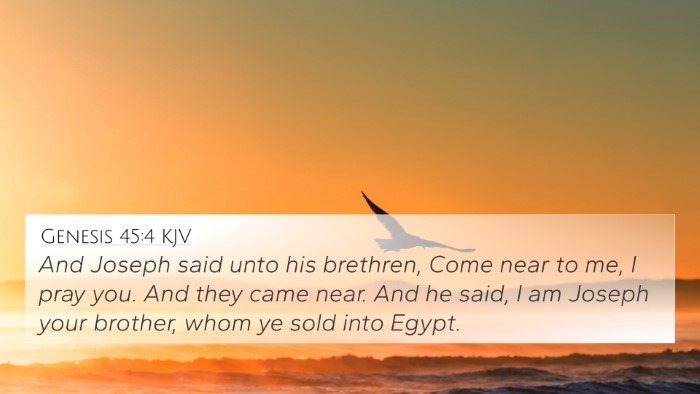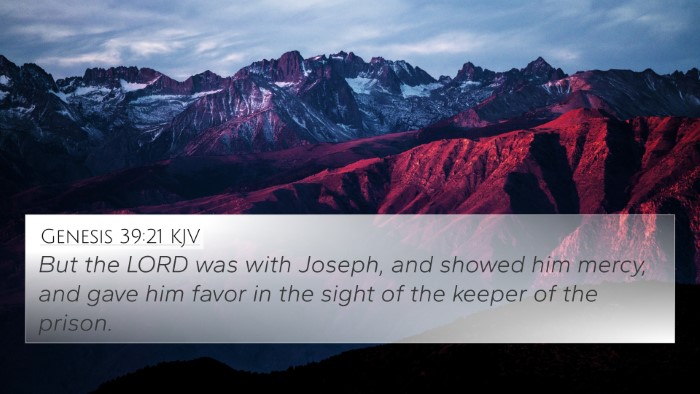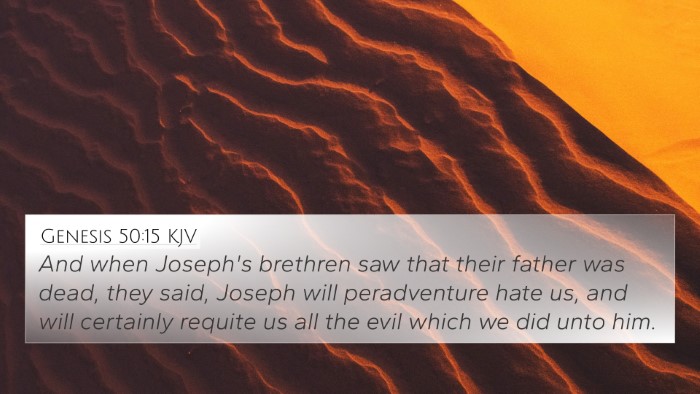Understanding Acts 7:9
Acts 7:9 recounts a pivotal moment in biblical history, where the focus centers on the actions of Joseph, who was sold into slavery by his brothers. This verse serves as a narrative precursor to a profound theological discussion led by Stephen before the Sanhedrin. Below, we delve into the meanings and interpretations drawn from esteemed public domain commentaries to better understand this verse's implications.
Contextual Overview
In the book of Acts, Stephen's speech encompasses the entire narrative of Israel’s history, shedding light on God’s continuous involvement in their lives despite human failures. Acts 7:9 specifically highlights Joseph's betrayal and foreshadows themes of suffering, divine providence, and redemption.
Commentary Insights
-
Matthew Henry:
Henry notes that Joseph's story illustrates the malice of his brothers, setting a tone for understanding divine purposes in the face of human sin. He emphasizes that God was with Joseph in his trials, suggesting that adversity can often lead to greater purposes in God's plan.
-
Albert Barnes:
Barnes highlights that Joseph’s being sold is part of God’s providential plan. Despite being rejected by his own family, Joseph's eventual rise to power illustrates how God can turn dire situations into avenues for His glory and the salvation of many, echoing themes of forgiveness and reconciliation.
-
Adam Clarke:
Clarke discusses the cultural implications of Joseph's story, pointing out that envy and hatred can disrupt familial relationships. He views the incident as a reflection of the challenges faced by those who rise above their circumstances, and how their paths may bring about healing and unity in the end.
Thematic Connections
Acts 7:9 serves as a rich ground for thematic connections throughout the Bible. Some key themes include:
- Divine Providence: Joseph's journey, despite its trials, demonstrates God's sovereign control over our lives.
- Rejection and Suffering: The rejection of Joseph prefigures Christ's own rejection, inviting reflection on suffering as a part of God's overarching narrative of redemption.
- Forgiveness and Restoration: The eventual reconciliation between Joseph and his brothers points towards the Christian call for forgiveness and the possibilities of restoring broken relationships.
Cross-References
To further enhance understanding, here are several Bible verses that connect thematically and contextually with Acts 7:9:
- Genesis 37:28: Details Joseph's brothers selling him to the Midianites.
- Genesis 39:2: Mentions that the Lord was with Joseph in Egypt.
- Psalm 105:17-19: Reflects on God's testing of Joseph during his trials.
- Matthew 21:37: Jesus refers to being sent by the Father despite rejection, resembling Joseph's story.
- Hebrews 11:22: Highlights Joseph's faith regarding the exodus of the Israelites.
- Romans 8:28: Declares that all things work together for good for those called according to His purpose.
- Acts 2:23: Discusses Jesus’ betrayal and crucifixion, echoing Joseph's story of betrayal.
Conclusion
Acts 7:9 serves as a profound reminder of how God works through human failings for His sovereign purposes. By examining cross-references and thematic connections within Scripture, we gain deeper insights into the nature of God’s interaction with humanity. Those seeking to explore this verse will find that it presents a key opportunity for reflection on God's plans amidst suffering, the call for reconciliation, and the hope that lies in forgiveness.
Further Study Tools
For those interested in exploring the themes and connections in the Bible further, consider utilizing:
- Bible Concordance
- Bible Cross-reference Guide
- Comprehensive Bible Cross-reference Materials
- Tools for Bible Cross-referencing
- Cross-reference Bible Study Methods














